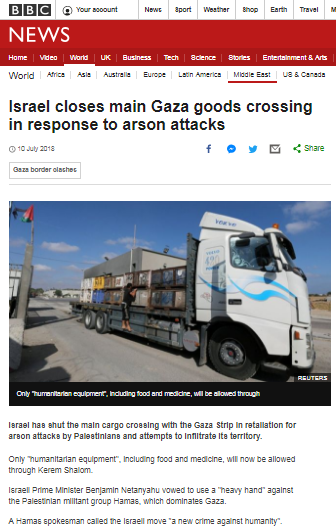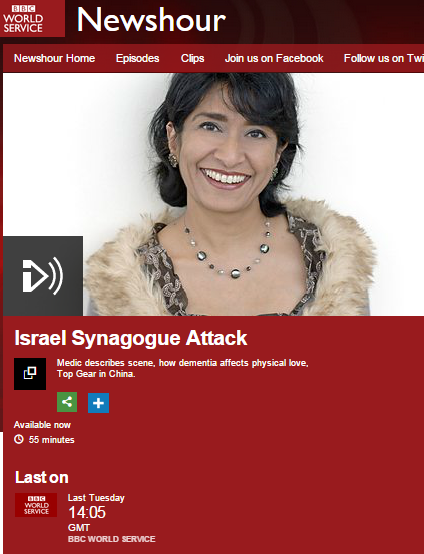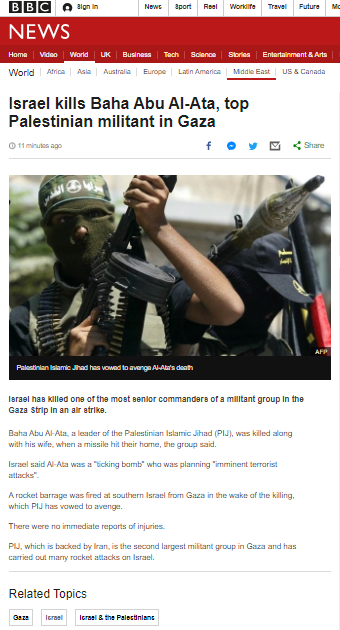On June 27th an article titled “US warns Syria over ‘potential’ plan for chemical attack” appeared on the BBC News website’s Middle East and US & Canada pages.
The article includes references to the attack that took place in Khan Sheikhoun in April of this year and the language used is noteworthy.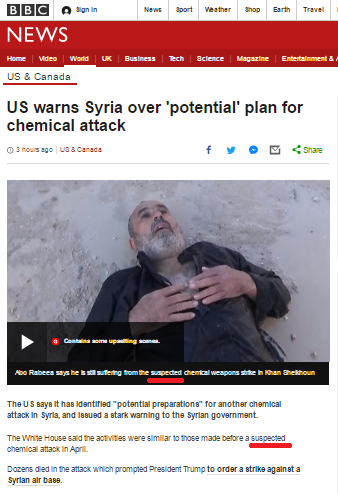
At the head of the article readers find a video – originally broadcast by the BBC a month after the attack – with the caption “Abo Rabeea says he is still suffering from the suspected chemical weapons strike in Khan Sheikhoun”. [emphasis added]
The article itself opens:
“The US says it has identified “potential preparations” for another chemical attack in Syria, and issued a stark warning to the Syrian government.
The White House said the activities were similar to those made before a suspected chemical attack in April.” [emphasis added]
Later on readers are told that:
“President Assad denied his forces were behind the suspected nerve gas attack in the rebel-held north-western town of Khan Sheikhoun in April.”
The link in that paragraph leads to a BBC video from April showing an AFP interview with Bashar al Assad that the Syrian regime found friendly enough to post on its own website.
In the weeks since that attack took place a number of investigations have been conducted by various parties.
A report published by the UN’s Organization for the Prohibition of Chemical Weapons (OPCW) found that samples taken from victims and from the environment indicated exposure to “sarin or a sarin-like substance”.
The French government also published a report in late April in which it was concluded that sarin was used in Khan Sheikhoun on April 4th and that:
“The sarin present in the munitions used on 4 April was produced using the same manufacturing process as that used during the sarin attack perpetrated by the Syrian regime in Saraqib [in April 2013]. Moreover, the presence of hexamine indicates that this manufacturing process is that developed by the Scientific Studies and Research Centre for the Syrian regime.”
Similar conclusions were reached by additional parties including the US, Turkey and the UK as well as Human Rights Watch – an NGO usually considered by the BBC to be an impeccable source.
Is it possible that the BBC is not aware of those reports and hence is still describing the attack as “suspected” and amplifying Assad’s propaganda on the topic? That possibility is ruled out by the fact that included in the related reading at the bottom of this article is a link to a BBC report from April 26th titled “Syria chemical ‘attack’: What we know” that informs readers of the results of the investigations carried out by the OPCW, Turkey and France.
And yet despite that, visitors to the BBC News website still find plenty of content relating to that story which is presented using language and punctuation which suggests to audiences that there is reason to doubt whether an attack took place, what type of weapon was used and who carried it out.
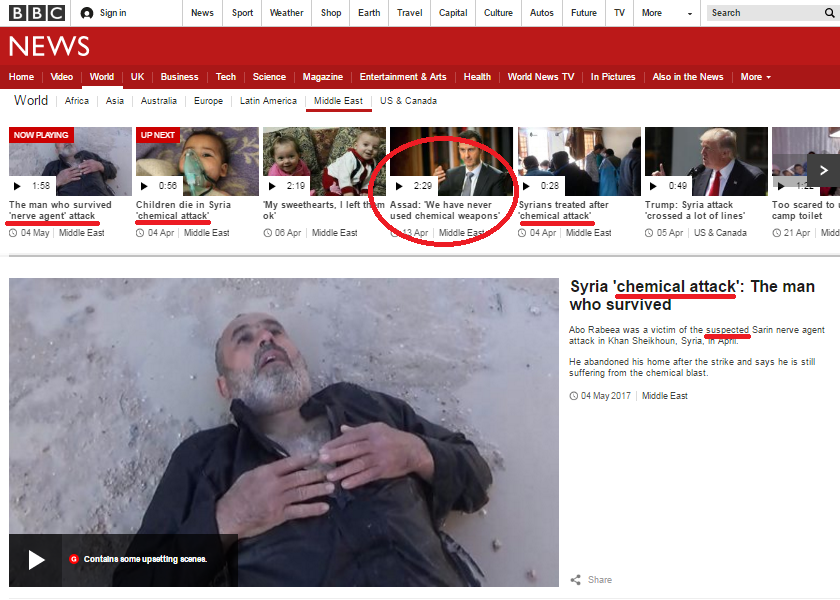
This is of course far from the only case of false balance in BBC reporting that obstructs audience understanding of a story. The BBC News website, for example, still carries a report amplifying inaccurate Hamas claims concerning a 2014 incident in the Shati refugee camp in Gaza despite the fact that the circumstances have been repeatedly clarified over the last three years. The practice of promoting false balance clearly hampers the BBC’s purpose of providing the public with accurate and impartial reporting that enables understanding of global issues.
Related Articles:
BBC’s ME editor suggests Syria chemical attack related to Israel
BBC News’ migrant crisis coverage: Bowen embeds with Assad
BBC promotes Assad propaganda in Syria reports

